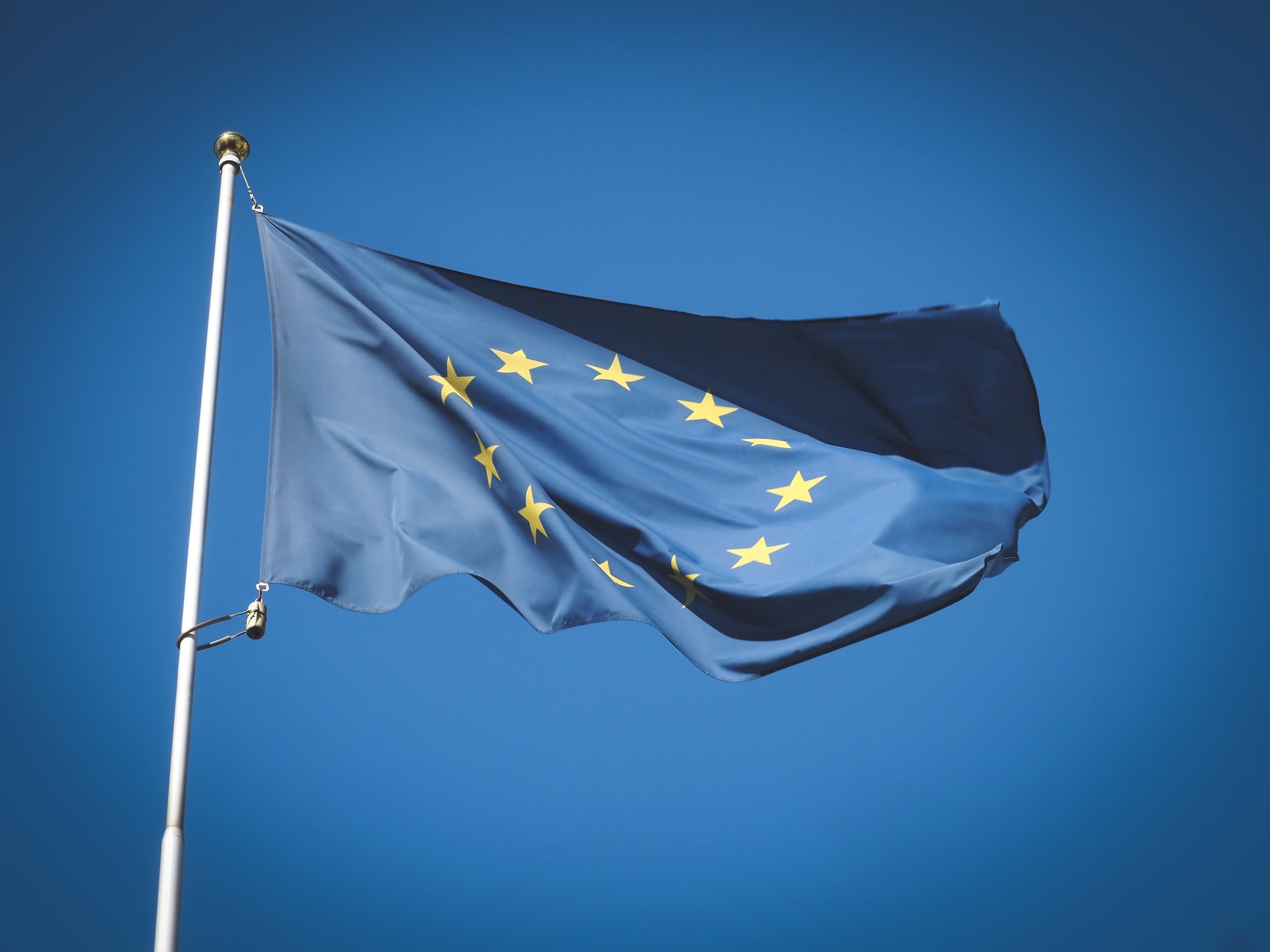
.pp-multiple-authors-boxes-wrapper {display:none;} img {width:100%;}
The European Commission has recently welcomed the political agreement reached between the European Parliament and the Council of the EU on the European Data Act.
Margrethe Vestager, Executive Vice-President for A Europe Fit for the Digital Age, said: “This is a significant milestone in the journey towards a single market for data. The Data Act will optimise data use by improving data accessibility for individuals and businesses. This is very good news for our digital transformation.”
Proposed by the Commission in February 2022, the act aims to leverage the exponential growth of the Internet of Things (IoT) and unlock the vast potential of industrial data in the European Union in a safe manner.
Thierry Breton, Commissioner for Internal Market, commented: “Following the adoption of the Digital Services, Digital Markets and Data Governance Acts, today’s agreement forms another milestone in our efforts to reshape the digital space.
“The Data Act will ensure that industrial data is shared, stored and processed in full respect of European rules. It will create a thriving data economy that is innovative and open, but on our European conditions.”
By optimising data accessibility and promoting a competitive and reliable European cloud market, the Data Act seeks to ensure that the benefits of the digital revolution are shared by everyone.
The IoT revolution has led to an unprecedented increase in data volume, with projections suggesting that it will continue to skyrocket in the coming years. However, a significant amount of industrial data remains unused, representing untapped possibilities and missed opportunities.
The Data Act addresses this issue by enabling users of connected devices to access and share the data generated by these devices, as well as services related to them. This provision not only boosts aftermarket services and innovation but also protects manufacturers’ trade secrets, ensuring continued investment in high-quality data generation.
In addition to unlocking data, the Data Act incorporates measures to safeguard EU companies from unfair contractual terms imposed unilaterally. However, not everyone welcomes the act.
Sean Heather, SVP for International Regulatory Affairs and Antitrust at the US Chamber of Commerce, said:
“The US Chamber remains concerned about the implications of the EU’s Data Act. These concerns are outlined in our March report highlighting the risks associated with this legislation, including the detrimental impact on competition, investment, and innovation.
Companies should not be mandated to turn over data, including sensitive information, to competitors and EU government entities, or face massive fines from European regulatory authorities.
We urge EU policymakers to engage in dialogue with stakeholders, including American businesses, as the Act is finalised and implemented.”
By promoting fair negotiations and protecting businesses from unjust agreements, the act empowers small and medium-sized enterprises to participate more confidently in the digital marketplace. This provision aims to create a level playing field and foster a vibrant ecosystem where all participants can benefit from the data economy.
Anita Schjøll Abildgaard, CEO and co-founder of Iris.ai, said: “Europe’s AI ecosystem is innovative and dynamic, containing some of the top academic and engineering universities in the world, and we must support it from the ground up if we wish to see it tackle some of the biggest problems of our time.
“Global parity in AI development is vital if we want to create AI models that are factually validated, transparent in their decision-making, and unbiased in their acquisition and usage of information.”
Recognising the importance of data in addressing public emergencies and implementing legal mandates, the Data Act allows public sector bodies to access and use data held by the private sector in such circumstances. This provision ensures that essential data is readily available when needed, enabling effective decision-making and response to crises like floods, wildfires, or other emergencies.
To promote competition, choice, and prevent vendor lock-in, the Data Act introduces rules that grant customers the freedom to switch between various cloud data-processing service providers.
By allowing users to choose the most suitable provider for their needs, the act promotes market dynamics and fosters a healthy and competitive environment. Additionally, the act includes safeguards against unlawful data transfers, ensuring a secure and reliable data-processing environment for businesses and consumers alike.
Interoperability is a key factor in enabling effective data sharing and processing. The Data Act emphasises the development of interoperability standards for data-sharing and data processing, aligning with the EU Standardisation Strategy. By promoting standardised approaches to data exchange, the act facilitates seamless collaboration and integration across sectors, enhancing efficiency and innovation within the EU.
The political agreement reached between the European Parliament and the Council of the EU marks a significant step toward implementing the European Data Act. Once formally approved, the act will come into force, establishing a unified market where data flows freely within the European Union.
As the digital revolution continues to reshape industries and societies, the Data Act paves the way for a future where data-driven solutions drive progress and empower the EU in a globally competitive landscape.
(Photo by Alexey Larionov on Unsplash)


Want to learn about the IoT from industry leaders? Check out IoT Tech Expo taking place in Amsterdam, California, and London. The event is co-located with Digital Transformation Week.
Explore other upcoming enterprise technology events and webinars powered by TechForge here.
.pp-multiple-authors-boxes-wrapper.box-post-id-24649.pp-multiple-authors-layout-boxed.multiple-authors-target-the-content.box-instance-id-1 .pp-author-boxes-avatar img { width: 80px !important; height: 80px !important; } .pp-multiple-authors-boxes-wrapper.box-post-id-24649.pp-multiple-authors-layout-boxed.multiple-authors-target-the-content.box-instance-id-1 .pp-author-boxes-avatar img { border-radius: 50% !important; } .pp-multiple-authors-boxes-wrapper.box-post-id-24649.pp-multiple-authors-layout-boxed.multiple-authors-target-the-content.box-instance-id-1 .pp-author-boxes-meta a { background-color: #655997 !important; } .pp-multiple-authors-boxes-wrapper.box-post-id-24649.pp-multiple-authors-layout-boxed.multiple-authors-target-the-content.box-instance-id-1 .pp-author-boxes-meta a { color: #ffffff !important; } .pp-multiple-authors-boxes-wrapper.box-post-id-24649.pp-multiple-authors-layout-boxed.multiple-authors-target-the-content.box-instance-id-1 .pp-author-boxes-meta a:hover { color: #ffffff !important; } .pp-multiple-authors-boxes-wrapper.box-post-id-24649.pp-multiple-authors-layout-boxed.multiple-authors-target-the-content.box-instance-id-1 .pp-author-boxes-recent-posts-title { border-bottom-style: dotted !important; } .pp-multiple-authors-boxes-wrapper.box-post-id-24649.pp-multiple-authors-layout-boxed.multiple-authors-target-the-content.box-instance-id-1 .pp-multiple-authors-boxes-li { border-style: solid !important; } .pp-multiple-authors-boxes-wrapper.box-post-id-24649.pp-multiple-authors-layout-boxed.multiple-authors-target-the-content.box-instance-id-1 .pp-multiple-authors-boxes-li { color: #3c434a !important; }
- SEO Powered Content & PR Distribution. Get Amplified Today.
- PlatoData.Network Vertical Generative Ai. Empower Yourself. Access Here.
- PlatoAiStream. Web3 Intelligence. Knowledge Amplified. Access Here.
- PlatoESG. Automotive / EVs, Carbon, CleanTech, Energy, Environment, Solar, Waste Management. Access Here.
- BlockOffsets. Modernizing Environmental Offset Ownership. Access Here.
- Source: https://www.iottechnews.com/news/2023/jun/29/european-data-act-unlocking-potential-industrial-data/




